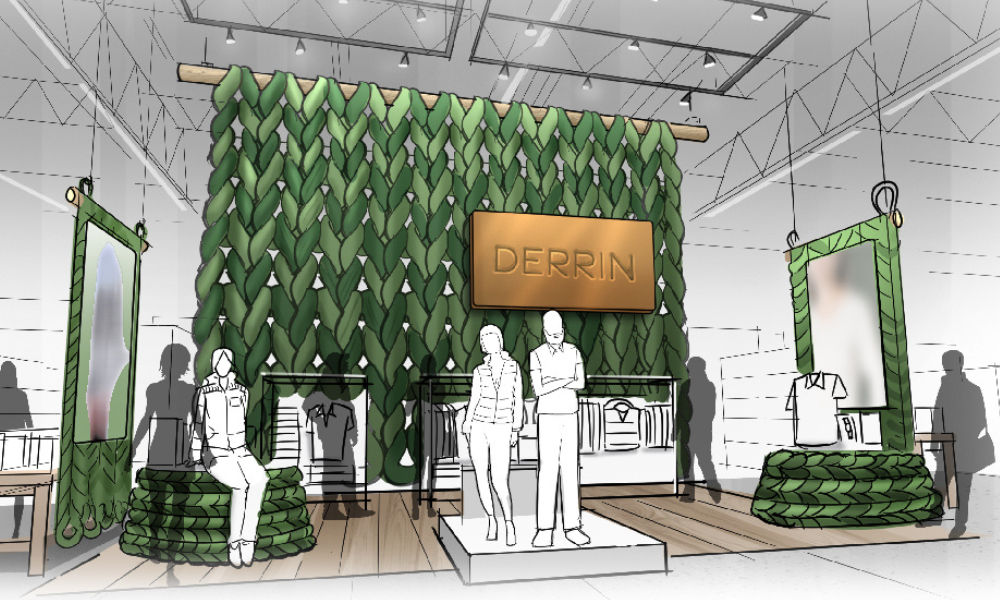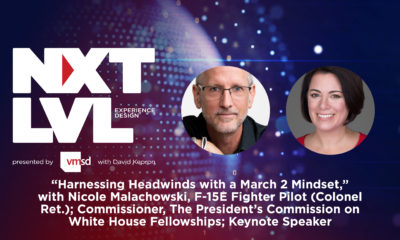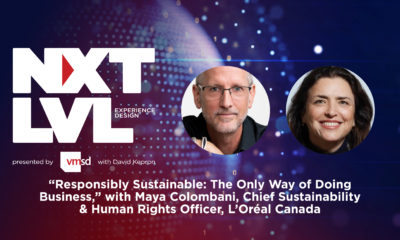NXTLVL Experience Design
Episode 55: Mirelle Phillips
“The Healing Power of Design” with Mirelle Phillips, Founder and CEO, Studio Elsewhere
Published
11 months agoon
By
David KepronEPISODE SUMMARY
Mirelle Phillips designs environments that use software and hardware development, emerging technology, immersive game design, and biophilic design to reimagine the experience of health, wellness, and care. She is the Founder and CEO of Studio Elsewhere, a design and technology company developing bio-experiential technology to promote behavioral, cognitive, and social health. They are pioneers of bio-experiential design – interactive, immersive environmental design using technology and physical design toward a healthier brain-body connection.
EPISODE NOTES
ABOUT MIRELLE PHILLIPS:
Mirelle’s LinkedIn Profile:
linkedin.com/in/mirelle-phillips-52077b29
Company Website: studioelsewhere.co
BIO:
AdvertisementMirelle Phillips is the Founder and CEO of Studio Elsewhere, a design and technology company developing bio-experiential technology to promote behavioural, cognitive, and social health.
Studio Elsewhere uses evidence-based and data-driven practices to develop virtual and physical interventions that promote brain health. We are pioneers of bio-experiential design – interactive, immersive environmental design using technology and physical design toward a healthier brain-body connection. Our embedded emerging technology solutions support the needs of healthcare professionals, researchers, patients and caregivers.
We use software and hardware development, emerging technology, immersive game design, and biophilic design to reimagine the experience of health, wellness, and care. Our model allows us to develop a first-of-its-kind technology and design practice that leads with compassion, imagination, and inclusivity.
Studio Elsewhere was selected to represent the first ever New York City pavilion at the 2021 London Design Biennale and selected to design the United Nations Pavilion for the World Expo 2021. As a Latina Founder and innovator, Phillips is a passionate advocate for women in colour in STEM. She is a graduate of Dartmouth College and previously led Experiential Design in the video game industry.
SHOW INTRO:
Welcome to the NXTLVL Experience Design podcast. Over our 4 seasons we have focused on “Dialogues on DATA: Design Architecture, Technology and the Arts”.
AdvertisementNXTLVL features provocateurs for whom disruption and transformation are a way of engaging in work and play every day.
They include leading scientists, artists, musicians, architects, entertainers and story tellers whose research, exploration and built work brings new understanding of the impact and relevance of place-making to the world.
On the show, we focus on what’s now and what’s next.
In this episode we talk about the power of design and its influence on well-being with the Founder and CEO of Studio Elsewhere, Mirelle Phillips. Mirelle and her team collaborate with various medical institutions to create environments that support patients, their families and healthcare workers in the journey to recovery and well-being.
Most of us have had the experience of going to a doctor’s office or dentist or hospital or some sort of medical facility and having to wait.
Some of us may even have spent a night in a temporary bed hooked up to a machine reading out our vital statistics and a team of nurses, doctors and specialists busying around us trying to understand what was wrong and how to make it right.
AdvertisementSome of us might have even spent time lying on that bed in a hallway before a room was available, staring up at a ceiling at a large rectangular fluorescent light, an acoustic tile ceiling and a rather drab overall interior.
Some of us might have even been a patient with a long term stay in a medical facility or had to return regularly for treatments for our particular condition.
Or some of us may have been caregivers or family members who accompanied our loved ones to the medical facility or care for them daily at home.
And then there are the health care workers themselves who over the past few years have caried an extraordinary burden as frontline workers during the COVID pandemic that, during the early phases, put crushing pressure on the medical system worldwide.
Whether we are a patient, a caregiver or healthcare worker, environments designed for supporting the care and recovery journey affect the experience along the path. The design of healthcare environments influence things like recovery time, they can mitigate stress, anxiety and fear and provide a sense of agency for those who feel like their bodies, and lives, are no longer in their control.
Our minds and bodies can be deeply affected by buildings.
Well maybe I need to refine that, not putting all the pressure on the built places.
The environments we inhabit, natural or human made, affect us.
A whole field of cognitive science has emerged that recognizes the influence hat the environment has on our mind-body state call neuroaesthetics.
Neuroesthetics is a term coined by Semir Zeki in 1999[3].
A more formal definition was arrived at in the early 2000’s as the scientific study of the neural bases for the contemplation and creation of a work of art.[4]
It doesn’t just apply to what is happening in the brain while looking at a piece of art. Among other things, it finds applications to music, dance, poetry, music, places and buildings.
What neuroesthetics does is it uses neuroscience to explain and understand the aesthetic experiences at the neurological level and helps us understand the relationship to how we feel and what we experience through the arts and architecture. Books like “Welcome to Your World: How the Built Environment Shapes Our Lives” by Sarah Williams Goldhagen and “Your Brain on Art” by Susan Magsamen and Ivy Ross are great examples of recent publications that help unpack how the environments we live in, and the art, music, dances, literature influences us.
On the show I have talked about ontological design – the idea that what we design designs us back. Neural connections in our brains are formed, reinforced or dismantled through a process of neuroplasticity by the experiences we have. Our environments shape us on a neurological level. Research is quite definitive about the idea that the environment has the capacity to help us recover from illness faster or make us perhaps diminish well-being.
And so the question arises…if we know that the environment has this profound effect on our minds and bodies, why is so much of what is built around us so banal?
This question goes beyond thinking about sustainability in design and building practice – though this is a critical consideration of addressing issues of global warming. Sustainable design practice should be a baseline for anything we build or manufacture.
What if places we built engaged the mind-body with a profound understanding of the impact of art, music, nature, and design, the study of neuroaesthetics?
If we did, we would have many more of the projects that Mirelle Phillips and Studio Elsewhere have created over the past few years.
Studio Elsewhere uses evidence-based and data-driven practices to develop virtual and physical interventions that promote brain health. They are pioneers of bio-experiential design – interactive, immersive environmental design using technology and physical design toward a healthier brain-body connection.
Their embedded emerging technology solutions support the needs of healthcare professionals, researchers, patients and caregivers using software and hardware development, emerging technology, immersive game design, and biophilic design to reimagine the experience of health, wellness, and care.
They have developed a model that allows for the development of a first-of-its-kind technology and design practice that leads with compassion, imagination, and inclusivity.
Mirelle Phillips is the Founder and CEO of Studio Elsewhere. She leads a team of designers and digital technology mavens developing bio-experiential technology to promote behavioural, cognitive, and social health.
While many of the application of Studio Elswhere’s work supports the well-being of patients, caregivers and healthcare workers, I can imagine a day when these big ideas find enormously impactful applications in the built environment across education, corporate interiors, retail, hospitality and almost every other place where brains and buildings connect.
ABOUT DAVID KEPRON:
LinkedIn Profile: linkedin.com/in/david-kepron-9a1582b
Websites:
https://www.davidkepron.com (personal website)
vmsd.com/taxonomy/term/8645 (Blog)
Email: david.kepron@NXTLVLexperiencedesign.com
Twitter: DavidKepron
Personal Instagram: https://www.instagram.com/davidkepron/
NXTLVL Instagram: https://www.instagram.com/nxtlvl_experience_design/
Bio:
David Kepron is a multifaceted creative professional with a deep curiosity to understand ‘why’, ‘what’s now’ and ‘what’s next’. He brings together his background as an architect, artist, educator, author, podcast host and builder to the making of meaningful and empathically-focused, community-centric customer connections at brand experience places around the globe.
David is a former VP – Global Design Strategies at Marriott International. While at Marriott, his focus was on the creation of compelling customer experiences within Marriott’s “Premium Distinctive” segment which included: Westin, Renaissance, Le Meridien, Autograph Collection, Tribute Portfolio, Design Hotels and Gaylord hotels.
In 2020 Kepron founded NXTLVL Experience Design, a strategy and design consultancy, where he combines his multidisciplinary approach to the creation of relevant brand engagements with his passion for social and cultural anthropology, neuroscience and emerging digital technologies.
As a frequently requested international speaker at corporate events and international conferences focusing on CX, digital transformation, retail, hospitality, emerging technology, David shares his expertise on subjects ranging from consumer behaviors and trends, brain science and buying behavior, store design and visual merchandising, hotel design and strategy as well as creativity and innovation. In his talks, David shares visionary ideas on how brand strategy, brain science and emerging technologies are changing guest expectations about relationships they want to have with brands and how companies can remain relevant in a digitally enabled marketplace.
David currently shares his experience and insight on various industry boards including: VMSD magazine’s Editorial Advisory Board, the Interactive Customer Experience Association, Sign Research Foundation’s Program Committee as well as the Center For Retail Transformation at George Mason University.
He has held teaching positions at New York’s Fashion Institute of Technology (F.I.T.), the Department of Architecture & Interior Design of Drexel University in Philadelphia, the Laboratory Institute of Merchandising (L.I.M.) in New York, the International Academy of Merchandising and Design in Montreal and he served as the Director of the Visual Merchandising Department at LaSalle International Fashion School (L.I.F.S.) in Singapore.
In 2014 Kepron published his first book titled: “Retail (r)Evolution: Why Creating Right-Brain Stores Will Shape the Future of Shopping in a Digitally Driven World” and he is currently working on his second book to be published soon. David also writes a popular blog called “Brain Food” which is published monthly on vmsd.com.
************************************************************************************************************************************
The next level experience design podcast is presented by VMSD magazine and SmartWork Media. It is hosted and executive produced by David Kepron. Our original music and audio production by Kano Sound.
The content of this podcast is copyright to David Kepron and NXTLVL Experience Design. Any publication or rebroadcast of the content is prohibited without the expressed written consent of David Kepron and NXTLVL Experience Design.
Make sure to tune in for more NXTLVL “Dialogues on DATA: Design Architecture Technology and the Arts” wherever you find your favorite podcasts and make sure to visit vmsd.com and look for the tab for the NXTLVL Experience Design podcast there too.
David Kepron is formerly the VP - Global Design Strategies – Premium Distinctive Brands at Marriott Intl., responsible for the strategic design direction for Westin, Le Meridien, Renaissance, Autograph Collection, Tribute Portfolio, Design Hotels and Gaylord Hotels. He is also the founder of Retail (r)Evolution, LLC and NXTLVL Experience Design, LLC. In his latest venture, NXTLVL Experience Design, Kepron brings years of retail and hospitality design expertise to the making of meaningful customer connections at brand experience places around the globe. His multidisciplinary approach to design focuses on understanding consumer behavior and the creation of relevant brand engagement moments at the intersection of architecture, sociology, neuroscience and emerging digital technologies. As a frequently requested speaker to retailers, hoteliers and design professionals nationally and internationally, David shares his expertise on subjects ranging from consumer behaviors and trends, brain science and buying behavior, store design and visual merchandising as well as creativity and innovation. @davidkepron; www.retail-r-evolution.com.

SPONSORED HEADLINE
7 design trends to drive customer behavior in 2024
In-store marketing and design trends to watch in 2024 (+how to execute them!). Learn More.
Advertisement

Nordstrom to Evaluate Founding Family’s Plan to Go Private

“Balmain Beach Club” Washes Ashore at Neiman Marcus

2024 Designer Dozen: Lisa Rachielles
SUBSCRIBE

Bulletins
Get the most important news and business ideas from VMSD magazine's news bulletins.
Advertisement
Most Popular
-
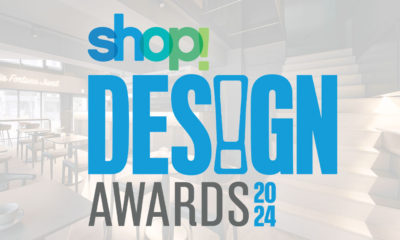
 Photo Gallery3 days ago
Photo Gallery3 days agoThe 2024 Shop! Design Awards Winners
-
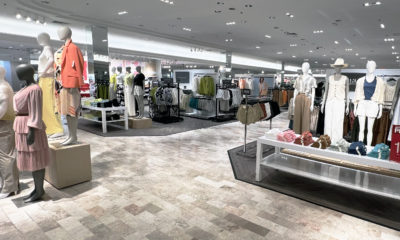
 Headlines1 week ago
Headlines1 week agoNew-Look JC Penney Debuts in New Jersey
-
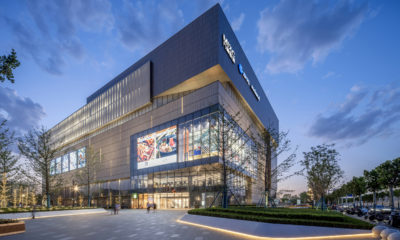
 Sector Spotlight2 weeks ago
Sector Spotlight2 weeks agoIt’s a Mall World After all
-
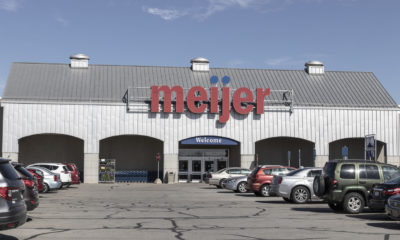
 Headlines1 week ago
Headlines1 week agoMeijer Adding Three Supercenters
-
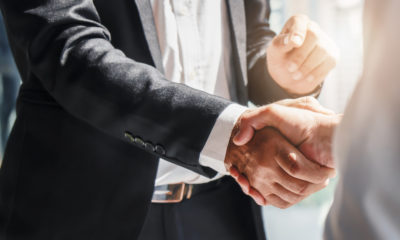
 Headlines4 days ago
Headlines4 days agoLong Island Shopping Center Sold for $8M
-
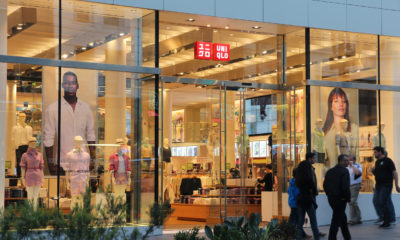
 Headlines2 weeks ago
Headlines2 weeks agoUniqlo Expanding Into Texas and in California
-
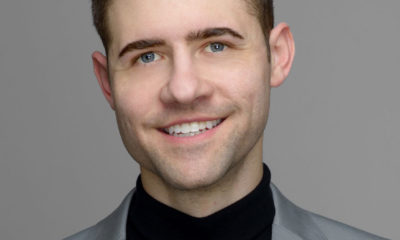
 Designer Dozen1 week ago
Designer Dozen1 week ago2024 Designer Dozen: Evan Harkrider
-
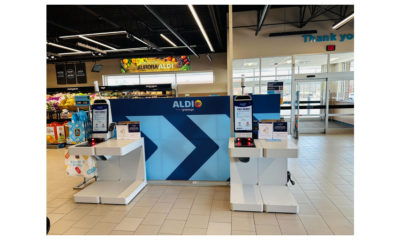
 Headlines2 days ago
Headlines2 days agoALDI Launches Checkout-Free Grocery
